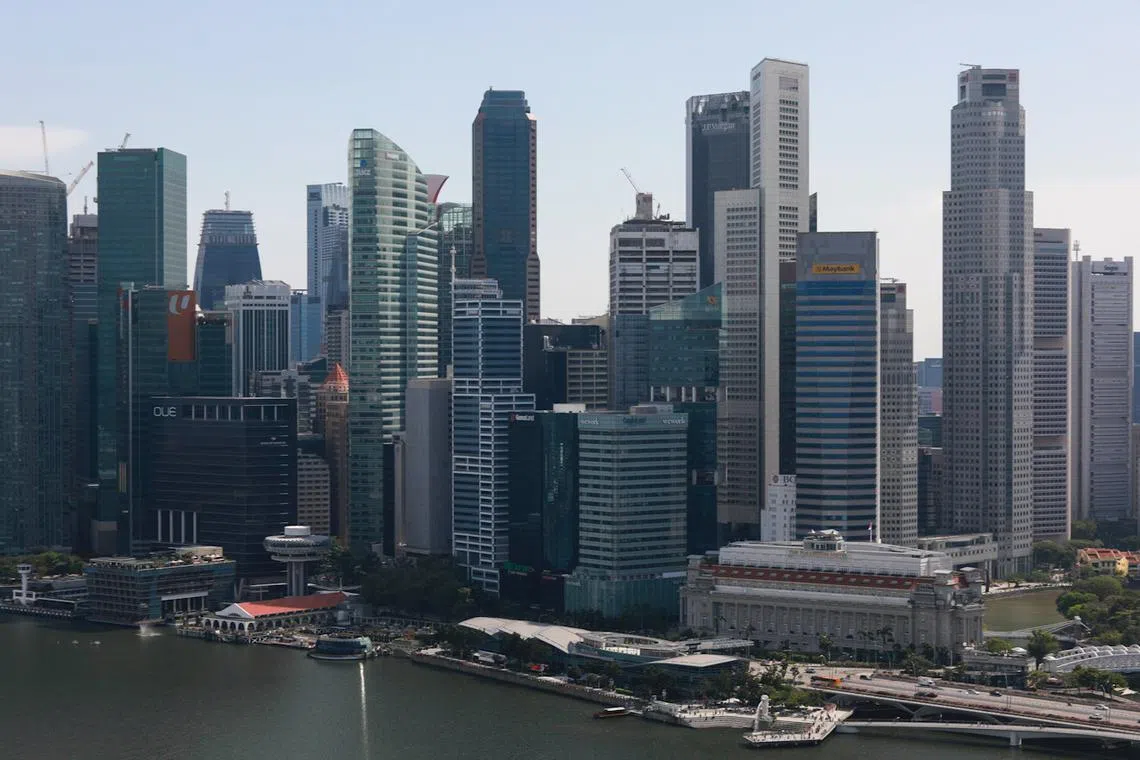Geopolitical tensions become top concern for family offices in Asia: UBS report
Sign up now: Get ST's newsletters delivered to your inbox

The report found that geopolitical tension was the top concern for most family offices in Asia-Pacific, followed by high interest rates and sticky inflation.
ST PHOTO: RYAN CHIONG
SINGAPORE – The war in Ukraine and growing divisions between the United States and China
It found that geopolitical tensions were the top concern for most family offices in Asia-Pacific, followed by high interest rates and sticky inflation.
Singapore, which is attracting many of these firms set up by wealthy families
Geopolitics was also the biggest worry for family offices in Europe, while the risk of a recession was the top concern in the US.
A significant number of family offices based in Asia and elsewhere are responding to these concerns by looking to boost their stocks and bond allocations in the developed markets of North America and Europe, the bank’s Global Family Office Report 2023 found.
It noted that 41 per cent of Asian family offices are planning to increase their asset allocation to developed market fixed income over the next five years.
Around 40 per cent are looking at greater allocation in developed market equities over the same period, while 35 per cent are eyeing emerging market equities.
Still, most Asian family offices will continue to hold 51 per cent of their assets closer to home, with 30 per cent looking to boost investment in Greater China, and 34 per cent in the rest of the region.
The global average for increased exposure to Asia (excluding Greater China) was almost as much – 31 per cent – but only 22 per cent of family offices worldwide intend to boost investment in Greater China in the next five years.
However, 58 per cent of global family offices will continue to hold their Greater China assets.
Mr Leung told a briefing in Singapore: “Overall, family offices were cautious about current markets in the face of an uncertain growth outlook in developed economies, as well as tighter lending conditions and heightened geopolitical tensions.”
He said Asian family offices are also looking for active management and diversification of their investment portfolio, with 46 per cent using hedge funds to diversify.
That compares with only 33 per cent of global family offices that prefer to use hedge funds to diversify.
Mr Leung added that “80 per cent of Asia-Pacific family offices expect hedge funds to meet or exceed their performance targets”.
Meanwhile, family offices worldwide, including in Asia, are also looking to increase investment in private equity funds and private debt to further diversify their private markets allocations.
“We continue to see strong interest amongst our family office clients in hedge funds and private equity funds,” Mr Leung noted.
Most of the private equity investments by Asian family offices are in technology, and some of the longer-term investment themes are medical devices and health technology.
Mr Leung said the tremendous growth in wealth across the world in recent years has led many families to think about how to manage and protect their wealth, with family offices as one option.
“But the question is, where can they find the right talent pool? Where can they find a stable economy, stable government to put that family office?” he noted.
“Singapore is naturally one of these destinations with a strong and stable government with a very clear legal system. And a pretty large talent pool.”
The Monetary Authority of Singapore said there were 700 single-family offices in Singapore as at the end of 2021.
Mr Leung said a lot of family offices coming to Singapore are not just from South-east Asia and Greater China, but also from across the world.
“From what we have seen so far, we literally have hundreds of clients who are fully committed to it, who really wanted to build their presence here and to manage that family wealth out of Singapore,” he added.
“And I think that is a well-established long-term trend.”



